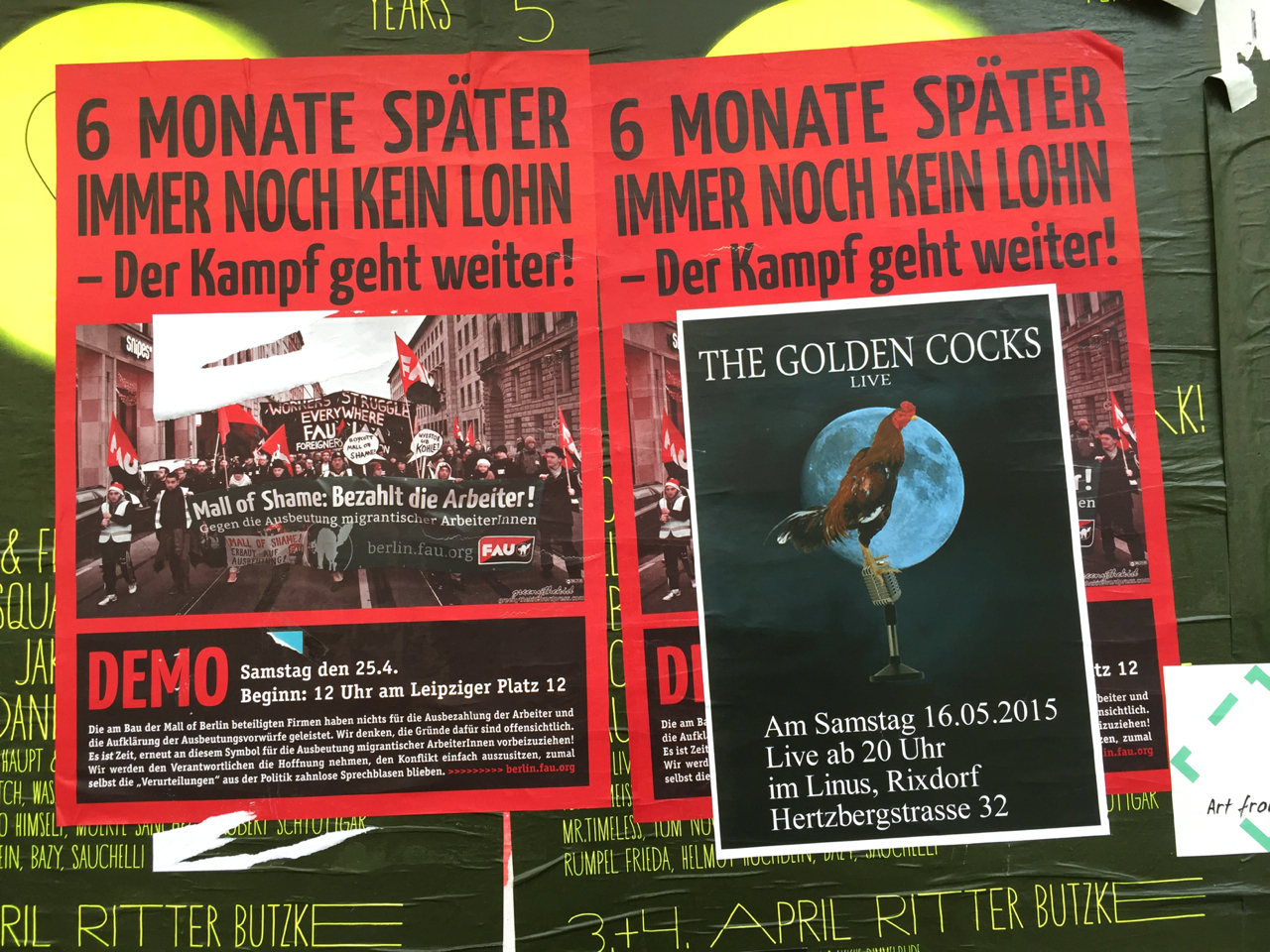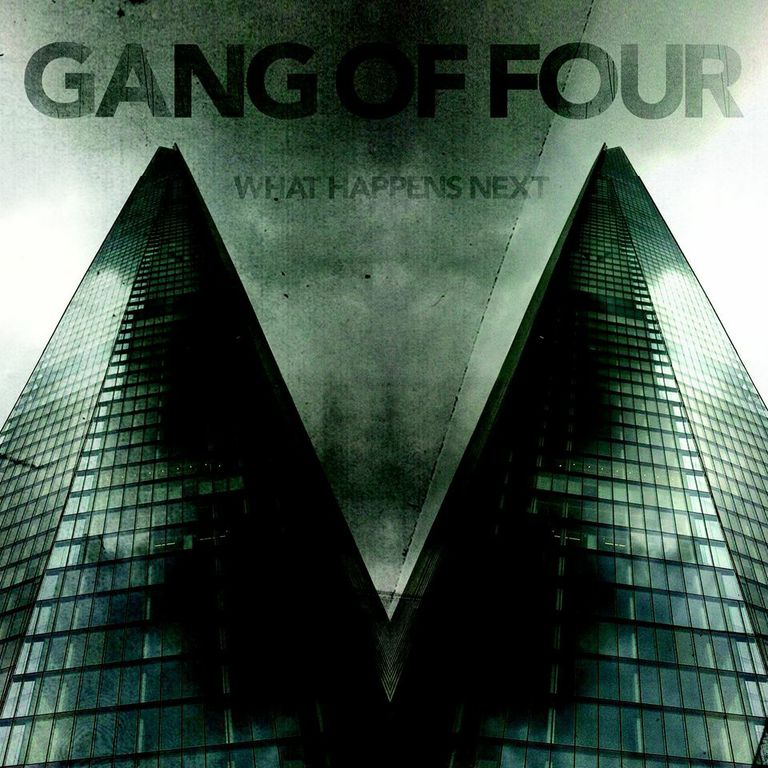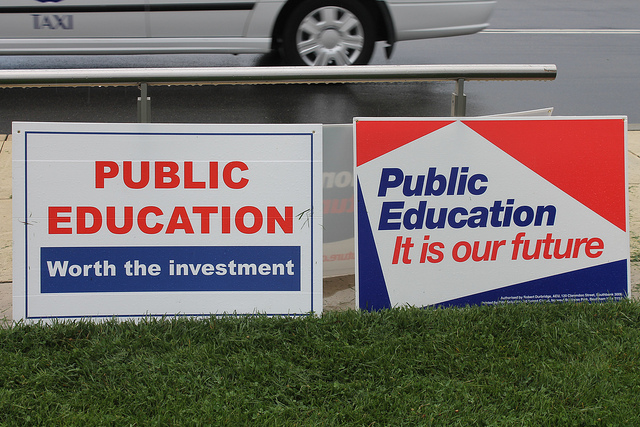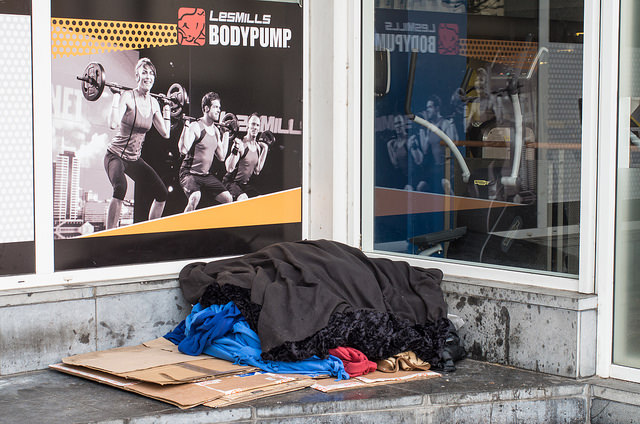For my birthday last week, I received three T-shirts featuring Walter Benjamin. It’s hard to imagine a better example of “long tail” marketing. I was delighted. But one of them made me uneasy. Playing off the now-ubiquitous religious slogan, it asks, “What would Benjamin do?” The truth, though, is that few thinkers have been less invested in getting things done. (More…)
Author: Charlie BertschCharlie Bertsch is a teacher and writer living in Tucson, Arizona. A founding editor and regular contributor to one of the world’s first online magazines, Bad Subjects, his work has appeared in numerous publications including The Oxford American, Punk Planet, Tucson Sentinel, Phoenix New Times, Cleveland Scene, and the San Francisco Bay Guardian.
He has served as the Music Editor for Tikkun and Zeek. His essays have appeared in Let Fury Have The Hour: The Punk Rock Politics of Joe Strummer, The Anti-Capitalism Reader: Imagining a Geography of Opposition, and both Bad Subjects collections, Collective Action and Political Education for Everyday Life.
Charlie is currently at work on a book about memoir in the age of New Media.
Charlie Bertsch is a teacher and writer living in Tucson, Arizona. A founding editor and regular contributor to one of the world’s first online magazines, Bad Subjects, his work has appeared in numerous publications including The Oxford American, Punk Planet, Tucson Sentinel, Phoenix New Times, Cleveland Scene, and the San Francisco Bay Guardian.
He has served as the Music Editor for Tikkun and Zeek. His essays have appeared in Let Fury Have The Hour: The Punk Rock Politics of Joe Strummer, The Anti-Capitalism Reader: Imagining a Geography of Opposition, and both Bad Subjects collections, Collective Action and Political Education for Everyday Life.
Charlie is currently at work on a book about memoir in the age of New Media.
Sometimes, you can’t tell how much a book has moved you until many years after you first encounter it. This past October, I took a trip Flagstaff, a town I’d somehow managed not to visit in fourteen years of living in Arizona. After a mostly sleepless night of coughing, I forced myself to drive north towards the Grand Canyon. That’s when I remembered Tony Hillerman. (More…)
When my family moved to Maryland in the summer of 1979, I was only eleven years old. Yet I already knew enough American history to be intrigued by the prospect of living south of the Mason-Dixon Line. I had absorbed enough from family vacations to have a pretty clear sense of what that would have meant in a state like Georgia or South Carolina. Maryland, though, confused me. (More…)
Even if you’ve heard nothing about the new Sufjan Stevens album Carrie and Lowell, the cover should make its purpose clear. But I somehow managed to remain willfully ignorant until the moment when I put it on the stereo. It must have been a defense mechanism, because the minute his voice entered the warbling folk of the first track, I was already in tears. (More…)
Climate change is dominating the global news cycle as never before. With every catastrophic storm and highly unusual spate of weather, the possibility that we have irreparably destabilized the Earth’s delicate ecological balance looms larger. Even in the United States, where, despite — or perhaps because of — a comparatively high standard of living and learning, denial of this dire situation has been rampant, the tide is tuning. (More…)
As I was preparing to spend a year abroad in Germany, I agonized over one of the tips my exchange student organization had sent me. It encouraged us to photograph aspects of the United States that wouldn’t be familiar from watching American movies and television. But what came to mind for me were the homeless people I saw on every trip to Washington D.C. (More…)
Sometimes accidents of timing reveal what is no accident. The news media was preoccupied with two stories this past Monday: the letter that 47 Republican senators sent to Iranian leaders warning them that any agreement signed by the President might not outlast his term, and the outrage over footage of an Oklahoma fraternity singing a racist song that invoked lynching. (More…)
Few bands have a more problematic relation to novelty than Gang of Four. Persistently critical of postmodern capitalism’s relentless search for new sources of income, they still repudiated the nostalgia that has so often beset the modern Left, embracing electronic dance music when most of their fellow travelers looked down on anything that deviated from classic rock instrumentation. But that move looks a lot different now than it did in the early 1980s. (More…)
Ever since the midterm elections in the United States, not a day goes by without news of some new offensive by the Right on a “hard” target of the modern welfare state: labor unions, environmental protections and, most prominently, public education. To some, the pace and power of the attacks signal the dawn of a political age; to others, they simply represent another stage in the Reagan Revolution. (More…)
When I take my dad to watch the Metropolitan Opera broadcasts on Saturday mornings at the movie theater near my house, I know what to expect: slow-moving senior citizens who force the staff to bend over backwards satisfying their demands before the performance starts. That’s what made this past weekend so surprising. The same people were there, but many of them were going to see Fifty Shades of Grey instead. (More…)
Sometimes it’s easier to perceive a country’s most pressing problems when you don’t speak the language. It was August, 1986. I had only been in Germany a few weeks. All I could really say were sentences like “It is X” and “I am Y”. Understanding others was even harder. But I had already figured out that the words Obdachlosen and Asylanten were crucial for understanding the nation’s future. (More…)
When I saw the coupon in my social media feed, I just had to buy the new Sleater-Kinney album at Best Buy. It’s hard to imagine a more incongruous place to procure the return of those darlings of middle-aged — and usually white — music critics. But that’s why it felt so necessary. I needed to be reminded of the world the band had warned us about. (More…)











